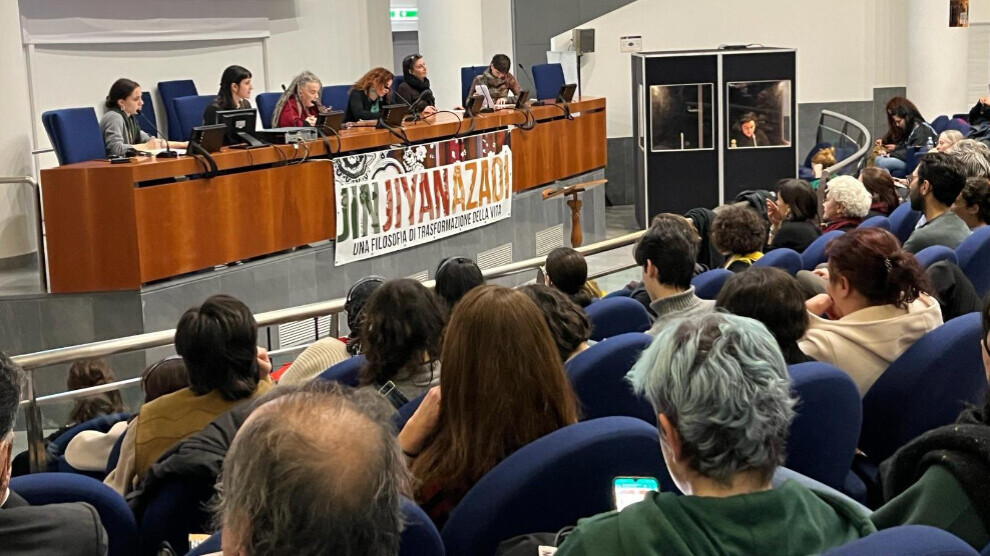Conference "Jin, Jiyan Azadî, a philosophy of life transformation" in Rome
Conference "Jin, Jiyan Azadî, a philosophy of life transformation" took place at the University Roma 3, Law Faculty.
Conference "Jin, Jiyan Azadî, a philosophy of life transformation" took place at the University Roma 3, Law Faculty.

The conference "Jin, Jiyan Azadî, a philosophy of life transformation" was held at University Roma 3, Law Faculty.
After a short performance by actress Chiara Gioncardi, professor Laura Corradi began her intervention with a criticism of state/capitalist/patriarchal civilization in favor of democratic civilization - into which Öcalan urges us to delve deeper into thesis and practice. Corradi addressed the problem of a historical-social narrative that exclude women. She offered a critique of enlightenment culture and positivist science that legitimized the inferiorization of women and colonized peoples - and capitalism as the best mode of production.
She talked about the fact that knowledge is situated and that the social sciences - as Ocalan states from prison - have the task today of supporting the transformation towards a democratic society that has resisted these 5000 years of patriarchy, various forms of state and of capital relations. Social solidarity must be put back at the centre, she said - quoting the book 'Sociology of Freedom' by Öcalan - now also available in Italian. Corradi concluded by proposing, as Öcalan says, the end of women's slavery - starting from our areas of movement, from our men comrades who must 'kill the male within themselves' - disarticulating our subalternity and complicity with the male dominant."
Zilan Diyar, TJK-E activist, spoke in the afternoon session. She said: "I consider this conference very important. In a way, it completes the missing part of the puzzle in order to understand and explain the struggle of Kurdish women. At first, we objected to the fact that we were known only for our military side and a little for our magazine side. We explained the strong ideological and philosophical background behind this struggle, or that just mentioning it with Rojava was insufficient. Afterwards, we focused mostly on the ideological and philosophical side. Today's isolation is imposed on Kurdish society, starting from Imrali."
Diyar said: "Leader Apo started his first rebellion against his parents. By leaving home to protest a weak father and a mother who expects from him what is expected of a traditional son. But what he did at first was a rude rebellion. But here he held the point where the impasse opened. Establishing a break from the family, which he described as a microstate in his defense years later."